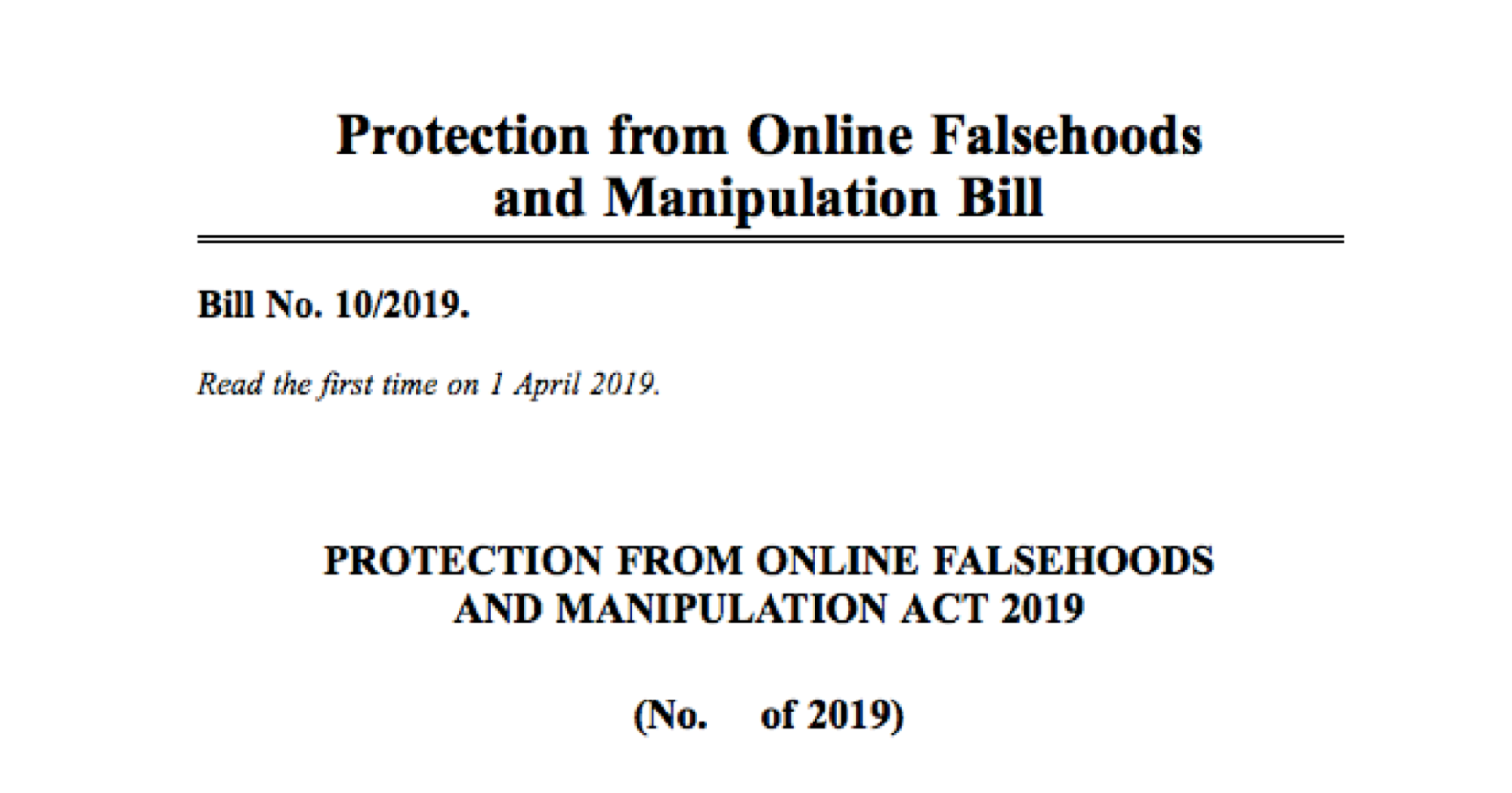Not everyone will understand what the newly-passed fake news law is about, at first. And that's fine.
Like every piece of legislation out there, the Protection from Online Falsehoods and Manipulation Act (pofma) is big and complicated.
At 81 pages, it's not exactly light reading material.
This is important
But like every other law in Singapore, it impacts your lives.
You have to know what it's about before you can form an opinion and debate its merits among friends and enemies.
So let's make sense of this thing together.
Why do we need a fake news law in the first place?
Falsehoods spread online are becoming a serious problem.
We're not just talking about blatantly fake scams or warnings passed around your parents' Whatsapp groups.
Online hate speech can lead to dire consequences, like in Sri Lanka, where rumours shared on Facebook led to riots that claimed lives.
Our government believes that despite Singapore's proud record of racial harmony, there exist racial and religious "fault lines" in society that could widen if action is not taken.
Minister Shanmugam explains
Over the month of April, Minister for Home Affairs and Law K Shanmugam used various platforms to explain the significance of POFMA to Singaporeans.
He wrote a commentary piece, did an "online tutorial", appeared at dialogue sessions, and gave exclusive interviews to mainstream media. He also appeared with Michelle Chong's Ah Lian character in a video and was driven around by TV host Dasmond Koh in another video.
In Parliament, Minister for Home Affairs and Law K Shanmugam spoke of fake news undermining society's institutions, like trust in the courts and the political system.
And he mentioned that foreign enemies could weaponise disinformation against Singapore.
The Act
Falsehoods only
The Act covers falsehoods, not opinions or criticism.
Posting online that you dislike a certain politician or feel that he's not good at his job is not covered by the Act.
Posting online that he punched someone in the face, when that never happened, is covered.
Corrections first
Breaching the Act doesn't mean one will face a maximum fine of up to S$50,000 or get sentenced to a maximum penalty of five-year jail right away.
The first response is a Correction direction, if a Minister decides, for instance, that the falsehood being communicated in Singapore is against the public interest.
If so ordered, the person who shared the falsehood must share the facts alongside it.
Online platforms may be required to ensure that those who have seen the falsehood will also see the correction. The original falsehood won't be deleted.
In more serious cases, take-down orders may be issued.
And corrections are not criminal sanctions.
According to research, corrections is more effective in mitigating the damage, and people can decide for themselves.
Malice punished
Criminal offences only apply to those who deliberately act to damage society with falsehoods.
So malicious actors beware.
Courts have the final say
Although the authorities can issue correction orders, the courts will provide a check.
The person so ordered can make an appeal, first to the Minister who issued the order, and then to the High Court if necessary.
Ultimately, the courts will decide if the decision made by the government is correct.
Criticisms
The Act is not without its critics.
Workers' Party (WP) leader Pritam Singh said that courts, not the executive, should make the first decision.
WP veteran Low Thia Khiang pointed out the political implications of the law. As a Minister is also a politician, Low use the analogy that it's akin to a football player acting as a referee at the same time.
WP Non-Constituency MP Leon Perera said it would have a chilling effect on free speech, as Singaporeans would avoid speaking up for fear of the lengthy legal process involved in making an appeal if one is necessary.
Shanmugam addressed some of these concerns, stating that the Act called for greater transparency, and that the legal process would be made as fast as possible, with court fees waived for the first three days.
Be informed
Ultimately, the Bill was passed by Parliament, by a vote of 72 to nine, with three abstentions.
It remains to be seen how the law will be used.
But at least you now know enough to voice an opinion when it is.
Related stories:
Top image from the Ministry of Law.
If you like what you read, follow us on Facebook, Instagram, Twitter and Telegram to get the latest updates.
